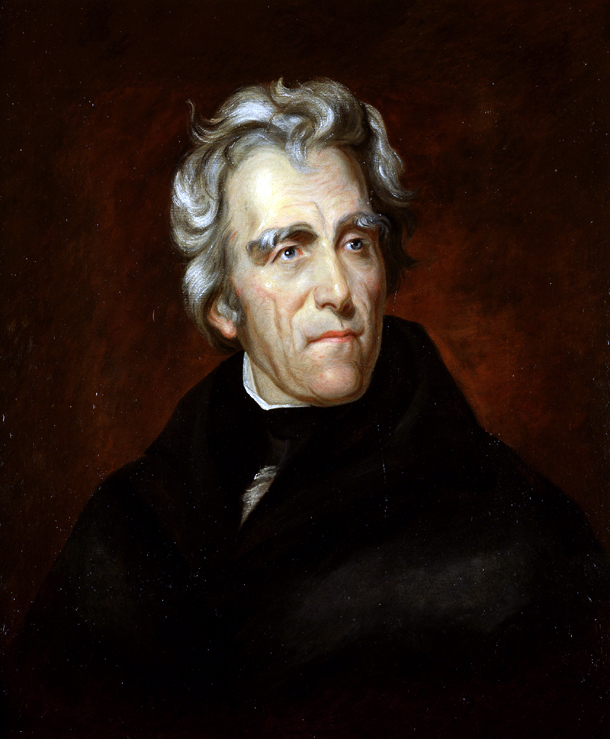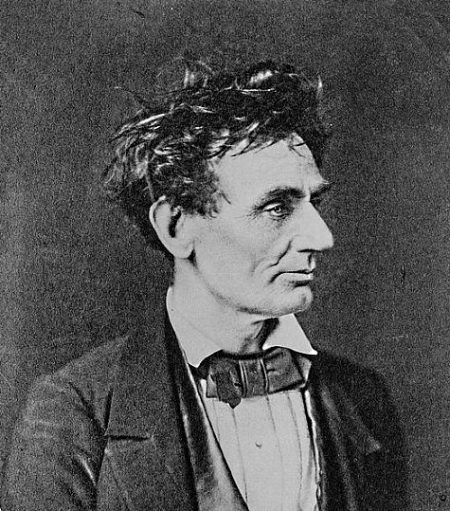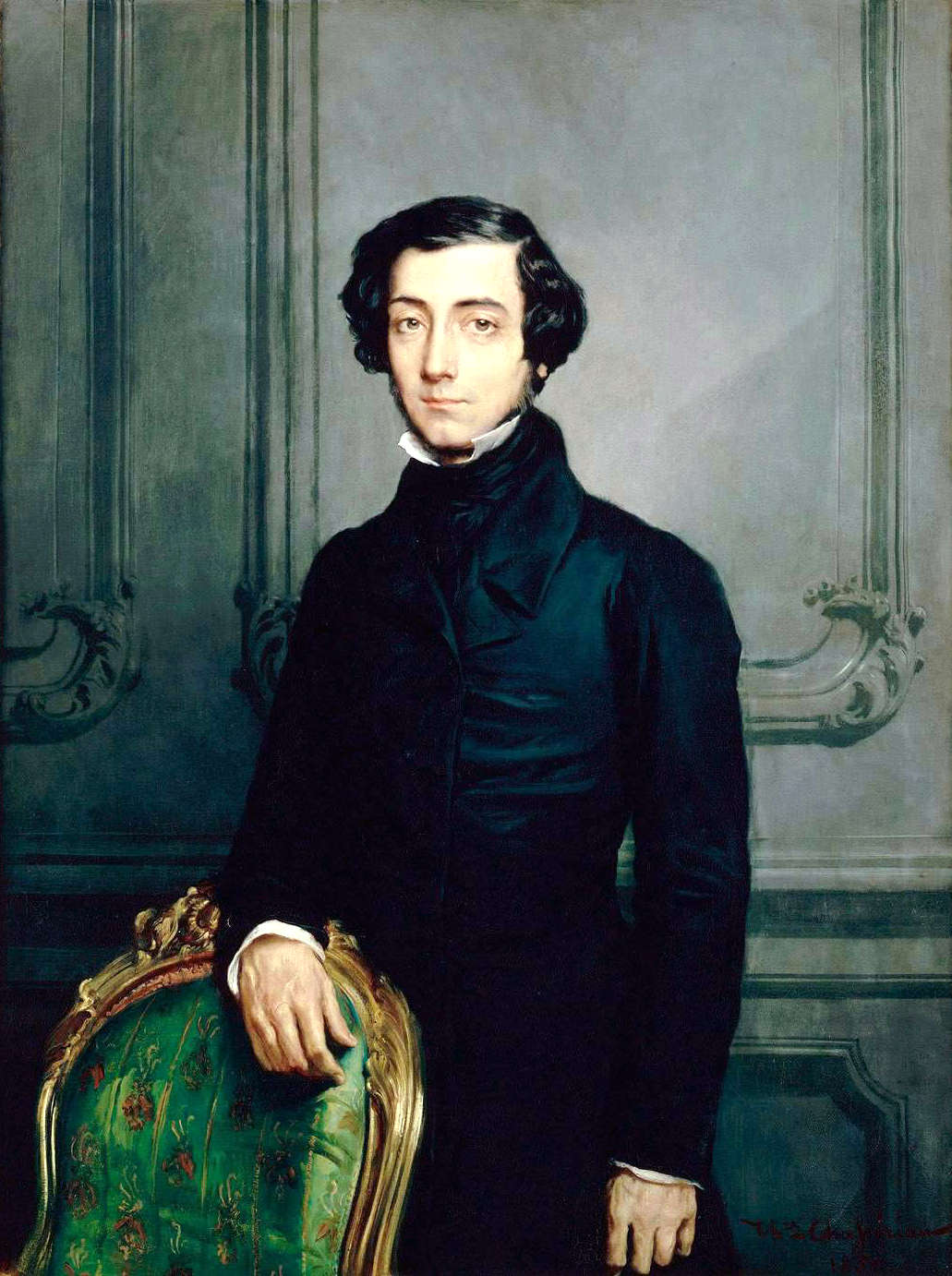Half a century after the Constitution was put in place, Americans engaged in a fierce debate over the proper function of government and its relation to the American people themselves. At the heart of this debate was an almost overwhelming sense of anxiety. Many American politicians expressed fear that their democratic experiment had gone terribly awry or that it had never succeeded in the first place. Foreign travelers like Alexis de Tocqueville bore witness to this American dialogue and even entered the discussion themselves. The future prosperity of the Republic, many believed, was in peril unless action was taken to protect the promises laid out by the Constitution.
In his 1838 address to the Young Men’s Lyceum of Springfield, Illinois, Abraham Lincoln explained what would happen if these anxieties were not resolved, stating that “[i]f destruction be our lot, we must ourselves be its author and finisher. As a nation of freemen, we must live through all time, or die by suicide”[1]. Lincoln’s grim portrait reveals a theme at the core of these anxieties–the question over class and how notions of equality gave agency in the political sphere.
…Sound sorta familiar?
This is the first post in what is likely to be a never-ending series I’m titling “Sound Sorta Familiar?”
There are always situations and events from history that carry faint reminders that we aren’t that different from our predecessors and that many of our modern arguments carry echoes of the past.
The period known as the Age of Jackson was defined by its expansion of enfranchisement as well as the numerous debates that accompanied such egalitarian reform. The anxieties expressed in these discussions were embodied by Andrew Jackson himself through his rhetoric and policies. Jackson understood the tensions surrounding American political discourse and felt that the success of the country’s democratic ideals rested on a nation united under a stable federal government. In his farewell address, Jackson expressed such sentiment, stating “that in the union of these States there is a sure foundation for the brightest hopes of freedom and for the happiness of the people. At every hazard and by every sacrifice, this Union must be preserved” [2]. According to Jackson, the “warning voice of Washington” had been forgotten by all in favor of voices of sectionalism and disunity [3].

In his words it becomes clear that Jackson believed in a whole America beneath a unifying federal government, but he also believed that such unity relied on the engagement of the people themselves. For Jackson, issues of class were directly tied to the government’s role and the American economy. In his crusade against the National Bank, Jackson expressed his frustration with the disproportionate investments being made by foreigners–particularly British aristocrats. Fears regarding aristocratic control thus directly influenced civil and economic legislation and defined how Jackson approached governing.
As Jackson lent his name to the age, his attitudes toward class and democracy simultaneously influenced–and were influenced by–other prominent thinkers of his day. Jackson’s distrust of aristocracy and support for the common man is also echoed by the famous poet and writer, Walt Whitman. Whitman espoused his support for Jackson’s Democratic Party out of a belief that, “although government can do little positive good to the people, it may do an immense deal of harm” [4]. Just as important to Whitman and Jacksonian Democrats was that access to politics be not limited to particular groups. As Whitman claimed, the aristocratic Whigs argued that “the most elaborate study and education are required in any one who would comprehend the deep mysteries, the hidden wonders, of the ruling of a nation” [5]. Such education would presumably be limited to those classes with the time and means to pursue studies and many Jacksonian Democrats detested such notions.
Statesman and historian George Bancroft held similar beliefs, warning his fellow citizens of the corruptible nature of the individual. Those individuals with the most wealth and power looked down upon the average citizen, believing “that the masses are ignorant; that farmers know nothing of legislation” [6]. It was not simply distrust in individuals or those who advocated for smaller federal government, but this issue clearly related to class. For them, a clear link was established between the government’s role and those who were allowed to participate in its functions. The government was to operate in the least intrusive way possible while providing small positive benefits and it would be supported by a white male constituency from all economic backgrounds.
It was not just Jacksonian Democrats who argued for a limited, but still unifying, federal government. Their political philosophy was so popular that shades of it can be found in the writings of the young Whig, Abraham Lincoln.

Writing on behalf of his constituency, Lincoln explained his belief “that the Congress of the United States has no power, under the constitution, to interfere with the institution of slavery in the different States” [7]. In 1837, the twilight of Jackson’s presidency, a debate over slavery in Washington D.C. appeared. Lincoln’s stance is clear; even in a place that directly fell under the purview of the federal government such as D.C., power rested in the people and such changes must only come at the request of said citizens. Although the debate over slavery was perhaps unique, it nonetheless related to broader debates over federal jurisdiction. While Lincoln’s political views would continue to evolve, it is a testament to the overwhelming influence of Jacksonian ideology that his early career reflected some similar stances. Even foreign travelers to the United States felt compelled to discuss the issues of equality and the role of the government in its perpetuation.
French diplomat and historian Alexis de Tocqueville arrived in America at the end of Jackson’s first term. He had come from what Whitman called the “old and moth-eaten systems of Europe” to conduct a survey on the young republic [8]. At the very center of his writings one finds the core theme of equality and his trying to flesh out what it meant to Americans. Born to an aristocratic family of the Old Regime, it is surprising that Tocqueville possessed comparably progressive views and firmly believed that democracy was the future for the world. He gawked at how the “citizen of the United States is taught from infancy to rely upon his own exertions in order to resist the evils and difficulties of life” [9]. This self reliance and worth ethic fostered a sense that every white man in America possessed the capacity to influence the Republic.
For Tocqueville, equality was defined by economic, social, and political mobility. A system that allowed for the potential to advance in such dramatic ways was inherently anti-aristocratic, but it also relied on the active participation of the populous. Tocqueville believed that one of the great threats to active liberty and the egalitarian promises of America was slavery, which he felt did “not attack the American Union directly in its interests, but indirectly in its manners” [10]. As every white man could vote, Tocqueville did not see slavery as inherently contradictory to democracy, but rather feared the creation of an aristocracy in the South [11]. Slavery, Tocqueville argued, “dishonors labor; it introduces idleness into society, and with idleness, ignorance and pride, luxury and distress” [12]. Therefore slavery was bad because it threatened the integrity of American democracy through promoting an aristocracy steeped in wealth and determined to protect its interests through political gain.

Other influential thinkers of the Jacksonian era discussed the relationship between work ethic, class, and democracy itself–though sometimes taking quite different approaches from each other. Pennsylvania writer Stephen Simpson believed there was a clear link between political power and the elite classes. For Simpson, the American Revolution was far from successful or finished, as the “mere acquisition of independence…would long engross attention and keep it from too close a scrutiny into the actual condition of the great mass of the community.”
No true break had been made from the “intense oppressions of European systems” and the American political system did little “to secure the happiness of the many instead of ministering to the benefit of the few!” [13]. The government had failed to distance itself from the European model and thus “reduced the industrious agriculturalist to the degradation of a mere vassal to some super-affluent and idle patroon” [14]. Crucially to Simpson, it was the wealthy elite of the country that were lazy and through their political power, the aristocracy was able to move wealth into their hands [15].
Across from Simpson’s critique on the accumulation of wealth by the lazy elite, Abraham Lincoln also expressed a strong belief in the capacity for hard work to raise the status of any man. In a letter to his step brother, John D. Johnston, Lincoln declined his relative’s request for more money with a counter offer. “I now promise you,” Lincoln wrote, “that for every dollar you will…get for your own labor…I will then give you one other dollar.” His decision to match Johnston’s wages came from a desire to teach him a lesson and prove the point that, while Johnston was not lazy, he was an “idler.” “If you will do this,” said Lincoln, “you will be soon out of debt, and, what is better, you will have a habit that will keep you from getting in debt again” [16].
Lincoln did not wish to see his step brother in debt, but more importantly he did not wish to see him continue his idle ways. It is clear that Lincoln believed in the type of equality witnessed by Tocqueville in that equality was defined by granting economic, political, and social access to all white men. By helping his relative realize his potential capacities through a positive work ethic, Lincoln promoted an American system that was strongly tied to Jacksonian democracy.
A central theme of Jacksonian Era discourse was the question of equality and how it existed in a democracy. Embedded within this debate are the facets of political and social discussions that sought to understand the relationship between the government’s role, who controls policy making, and egalitarianism. Although each writer and thinker approached these relationships differently, an overarching concern with the influence of class in political discourse may be seen. Figures like Stephen Simpson and Walt Whitman feared the influence of aristocracy on the economic and political well-being of America. Meanwhile, the Frenchman who actually possessed an aristocratic background, Alexis de Tocqueville, witnessed debates over equality in American and seemed fascinated by its relationship with democracy as a whole. In the end, such debates would be the crucible in which the politicians of America’s greatest crisis–the Civil War–were forged.
- Abraham Lincoln, Abraham Lincoln: Speeches and Writings 1832-1858 (New York: Library of Congress, Inc., 1989), 29.
-
Social Theories of Jacksonian Democracy: Representative Writings of the Period 1825-1850, ed. Joseph L. Blau (Indianapolis: Hackett Publishing Company, 1947), 3.
- Ibid., 4.
- Walt Whitman, in Social Theories of Jacksonian Democracy, 132.
- Ibid., 134.
- George Bancroft, in Social Theories of Jacksonian Democracy, 268.
- Lincoln, Abraham Lincoln, 18.
- Whitman, in Social Theories of Jacksonian Democracy, 138.
- Alexis de Tocqueville, Democracy in America (New York: Random House, 1981), 101.
- Ibid., 259.
- Ibid., 39.
- Ibid., 26-27.
- Stephen Simpson, in Social Theories of Jacksonian Democracy, 138.
- Ibid., 139.
- Ibid., 140.
- Lincoln, Abraham Lincoln, 224-225.

Leave a Reply